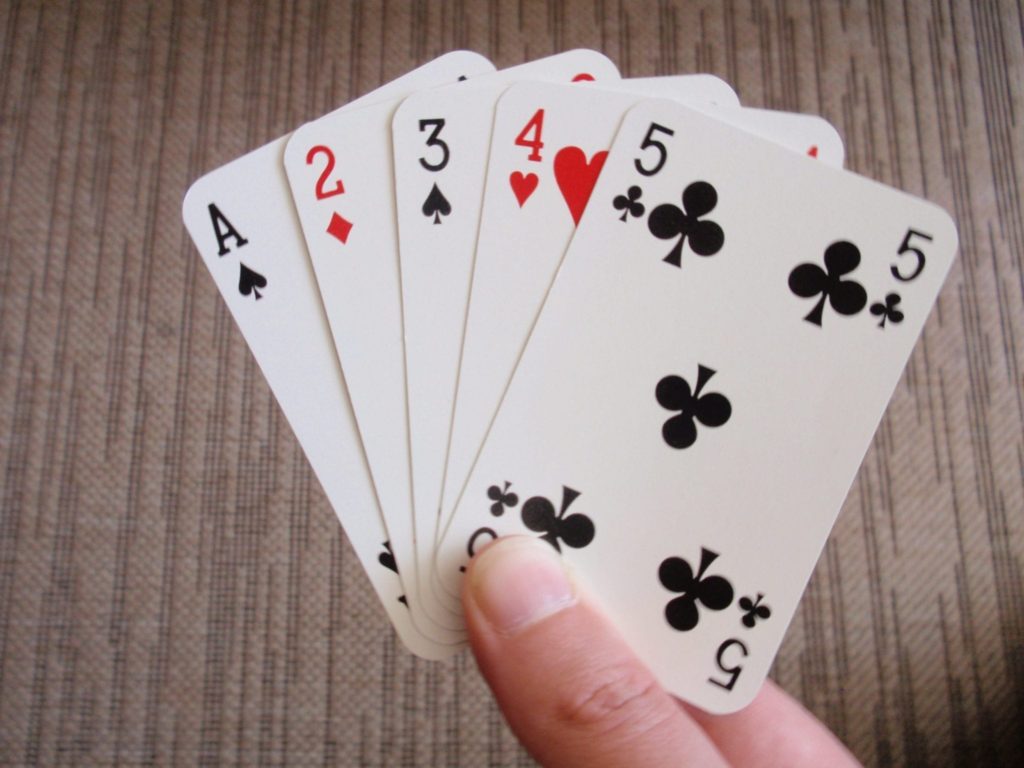
Spatial Requirements: Regular classroom setup: little or no space required
Activity Type: Movement/group
Grades: 2-12
Group Size: 10 or more
Time: 10 minutes
Introduction: When solving a conflict between individuals, the best defense mechanisms are those that help us find a solution where everyone wins. This lesson is designed to help students realize that a positive defense mechanism is one in which you don’t focus on winning or even being right, but on the best way to meet everyone’s needs.
Materials:
- 5 pieces of paper per student, each about half the size of a playing card. This can be accomplished by cutting 8×11 paper into 8 equal pieces. Each set of five should be numbered 1 through 5 on one side, with only one number on each piece.
Activity:
Take all of the papers and shuffle them randomly in one pile, then pass out five face-down number cards to each player. Tell them not to look at them until you give the start signal. Explain that the goal is collect five cards with the numbers 1 through 5 on them (one of each). To accomplish this, students must trade cards with each other. Trading begins when everyone has five cards and you give the signal. They can make a trade by approaching another player and saying, “I need a three.” The other player must then hand over a card, but it doesn’t have to be a three. The other player can choose whether or not to help. Players then switch roles, and the person who asked for a card gets to decide whether to help the player or not. Once the trade is complete, students move on and find a new partner to trade with. The winners are the first five people to reach the goal of holding all five of the correct cards. Give them about three minutes to complete the round. When the round is over, collect all the cards, shuffle them, and pass them out again.
In round two, the objective of the activity changes. This time, explain to the students that their goal is for as many people as possible in the entire group to get the correct set of numbers before time is up. Emphasize that for the group to win, they must have at least half of the people holding the correct cards. No one is a winner unless they reach that goal. Everyone still makes trades with only one partner at a time, and all the other rules remain the same.
Processing the Experience:
- How successful were you in the first round? How helpful were you to others?
- How successful were you in the second round? How helpful were you to others?
- How did your attitude change when the goal for round two was announced?
- What can this activity teach us about defense mechanisms and conflict resolution?
- Why should we try to find win-win solutions to our conflicts?
- How does a “me first” attitude affect our defense mechanisms and our ability to resolve conflicts?